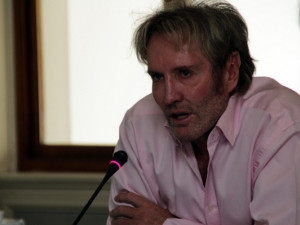
A long-standing dispute between Screamer Telecommunications and Sentech over Screamer's use of Sentech's spectrum in the 2.6GHz range is finally set to come to an end.
This is as the sector regulator's Complaints and Compliance Committee (CCC) hearing into whether an agreement between Sentech and Screamer that allowed Screamer to use about 10MHz of its 2.6GHz allocation draws to a close.
The Independent Communications Authority of SA (ICASA) complained to the CCC that the deal was illegal and breached the Electronic Communications Act (ECA). ICASA's lawyer argues that the bottom line is that Screamer transmitted without a licence, and also owned radio equipment without the necessary spectrum licence.
Screamer has argued that leasing spectrum from Sentech is legal and is akin to Virgin Mobile's use of other operators' spectrum to provide services. Sentech, which has since given back its allocation in 2.6GHz, cancelled the agreement around three years ago.
Commonplace
Screamer CEO Gavin Hart, responding to questions under cross-examination, said he has yet to be shown that what Screamer was doing under the deal - to provide products and services to customers using Sentech's spectrum - was illegal.
Under the deal, Screamer built, operated and maintained a network through which it served clients and paid Sentech a fee for using its spectrum, says Hart.
Hart says this is similar to Virgin Mobile's use of other operators' spectrum and other instances in the industry where companies such as Huawei build, maintain, operate and then transfer infrastructure to a telecoms company. "It's common practice."
Hart says after the company was stopped from using the spectrum, about two years ago, its client base fell from 2 500 to 1 500 and "drops daily". In mid-2011, ICASA raided the company's premises and confiscated its equipment.

At the time, ICASA spokesman Paseka Maleka said Screamer was raided because of its alleged "usage of radio frequency spectrum allocated to broadcasting signal distributor Sentech". He noted Screamer did not have a radio frequency spectrum licence.
Advocate Mark Wesley, acting on behalf of Screamer, says the company has not breached the ECA.
Harmful action
Hart is still contemplating going to the High Court over Sentech's effective cancellation after it denied the validity of the contract. He says Screamer has made a provision for about R7 million that is still due to Sentech under the deal, but was never invoiced again.
Screamer did not initially approach the courts as it wished to follow other routes, which is why the company asked ICASA to intervene in the contractual dispute between it and Sentech, says Hart.
In response to a question from Michael Motsoeneng, who is heading up ICASA's legal team, Hart said he would pay this amount over to Sentech, but only after reconciling it against what he believes Sentech has cost it.
After the raid, Screamer received an allocation in the 7GHz range, notes Hart. He says the deal benefited Sentech because it needed customers to show it was using the frequency efficiently. Government had threatened to revoke spectrum if it was not used effectively.
ICASA became aware of the deal as far back as 2009, but only told Screamer to stop its "illegal" activities in 2010, while the charge sheet was only formulated two years later.
Share